Why Do Self-Aware People Make Better Teammates?

“The worst form of lying happens when people lie about themselves…to themselves.“
Unfortunately, this pretty much sums up the prevalence of self-awareness among people across the world. While most individuals feel that they are self-aware and are grounded in reality, the fact is that – only about 14-15% of people can truly be referred to as ‘self-aware individuals’. Put in another way, most people do not even know that they do not possess this all-important quality.
What Exactly Is Self-Awareness?
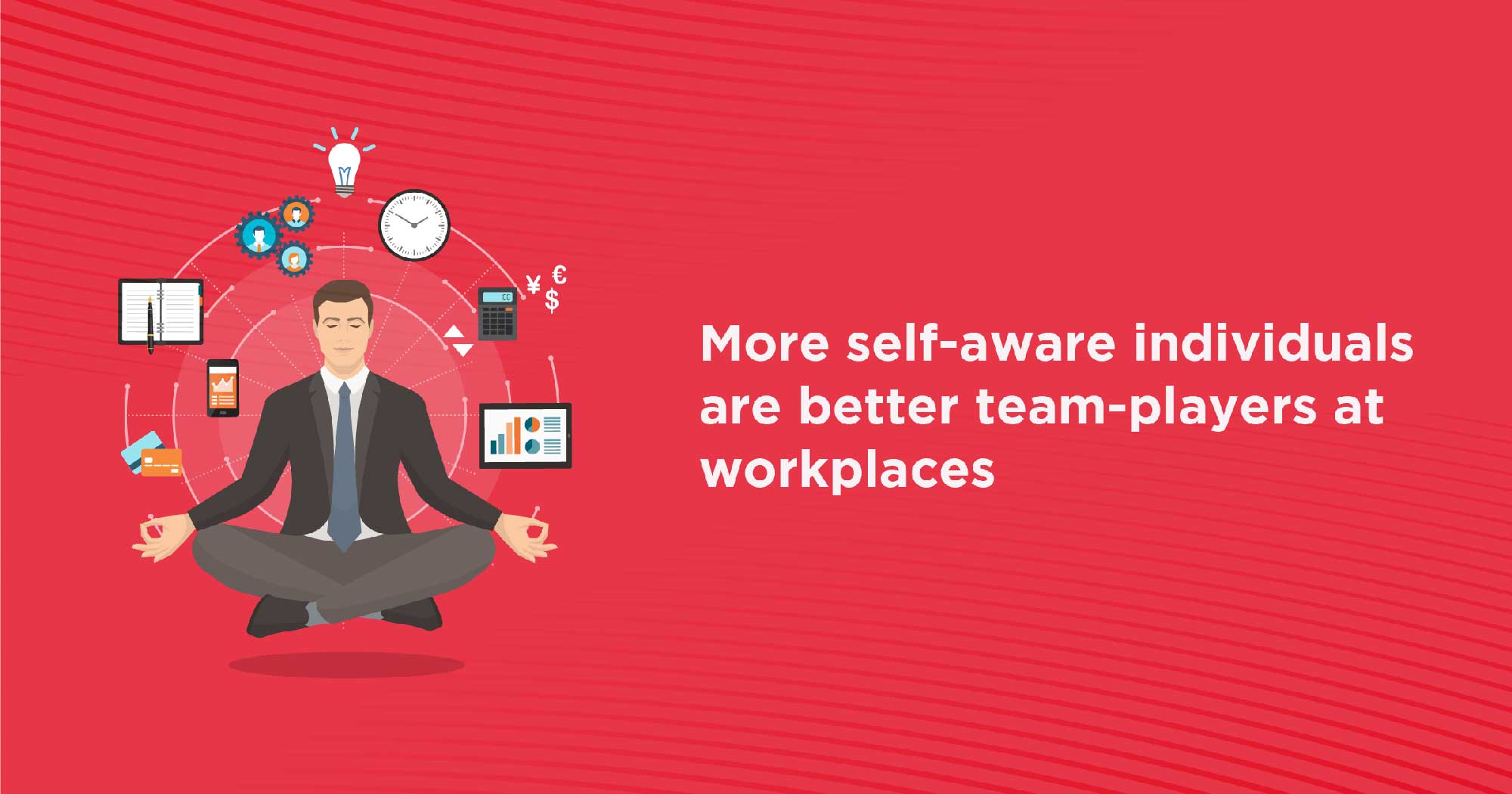
A Self-Aware Person Can be Better Team Player
Before proceeding with the benefits of being self-aware, it is important to understand what this surprisingly rare skill is all about. Broadly speaking, self-awareness refers to the capacity of a person to objectively interpret, evaluate & judge the impacts of their thoughts and actions. The art of being able to view oneself more clearly bolsters creativity, confidence & performance potentials. Self-awareness is that art, and a self-aware person the artist.
Both on professional and personal levels, self-awareness is an immensely essential virtue. It helps people to view situations positively, think constructively, motivate others, and facilitate both individual as well as team growth. In a recent survey, close to 59% of respondents opined that self-aware individuals perform as excellent team-players at their respective workplaces. Let us here take a look at the various factors that make self-aware people better team-players:
Greater Productivity Leads To Better Team Results
Self-awareness is all about being there in the present, moving away from distractions , and achieving a sense of calm while interacting with other team-members. With a focused mindset, it becomes a lot easier to ensure both collective and individual awareness – which, in turn, boosts team productivity levels. Contrary to common belief, staying focused is not as simple as it sounds – and being self-aware is the best way to gradually master this skill.
Note: On average, US companies lose nearly $590 billion every year – simply because their employees “do not pay attention”.
The Ability To Interact Within The Team Goes Up
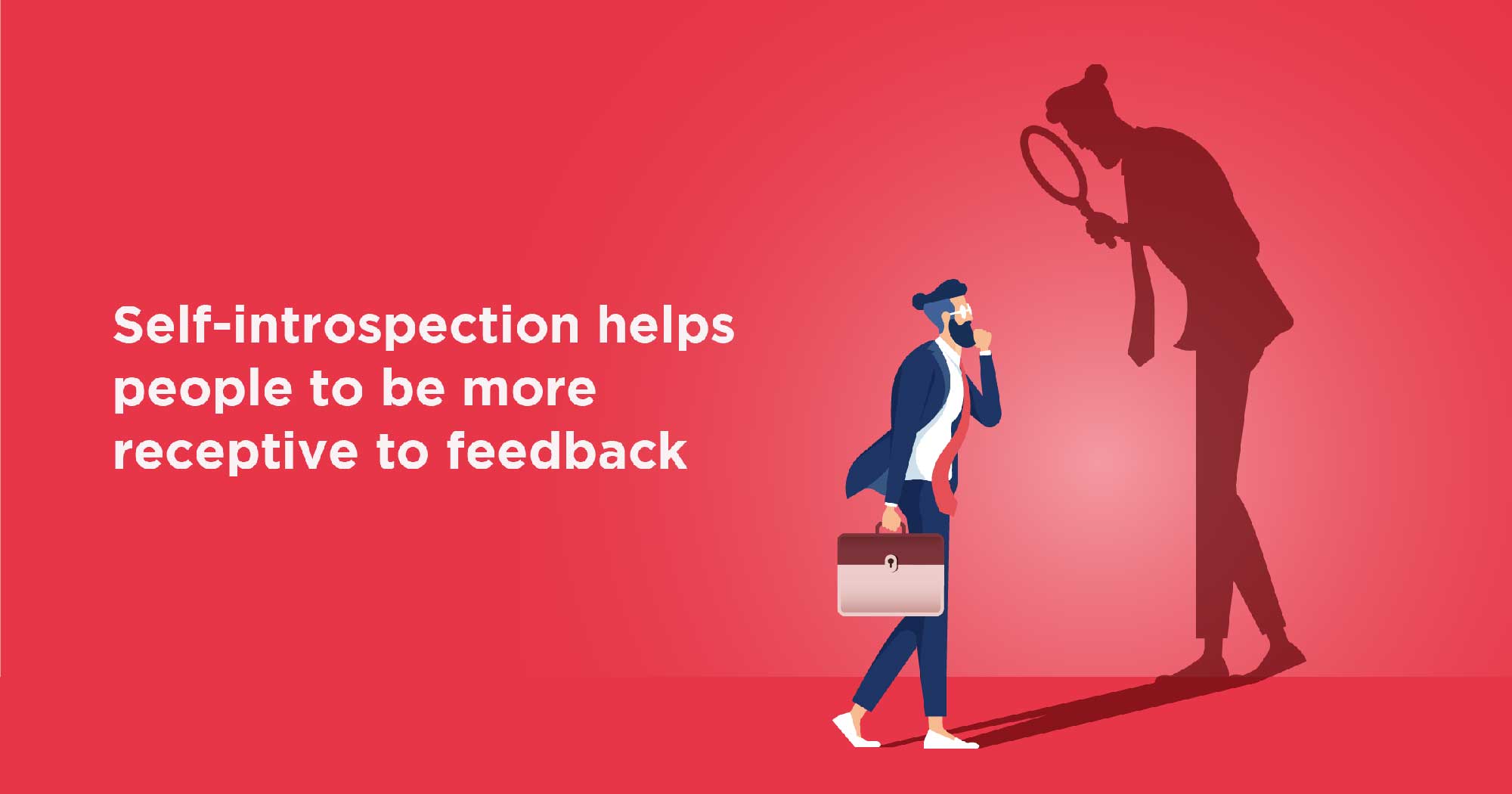
A Self-Introspection is Important for Self-Improvement
Everyone makes mistakes. Not everyone, however, knows (or are prepared to admit) that (s)he has made an error. Personal ego comes into play at that point – ruining team culture and professional relationships. Once again, self-awareness can come to the rescue in this context. When a person has proper self-perception, it becomes a lot easier for him/her to understand how any action (verbal or physical) can affect team-members – and what the reactions of the latter might be. In addition, self-introspection also helps people to be more receptive to feedback from the team and/or seniors, gain insights, and continue to become better versions of themselves.
Communications Become WITH Team-Members; Not ABOUT Them
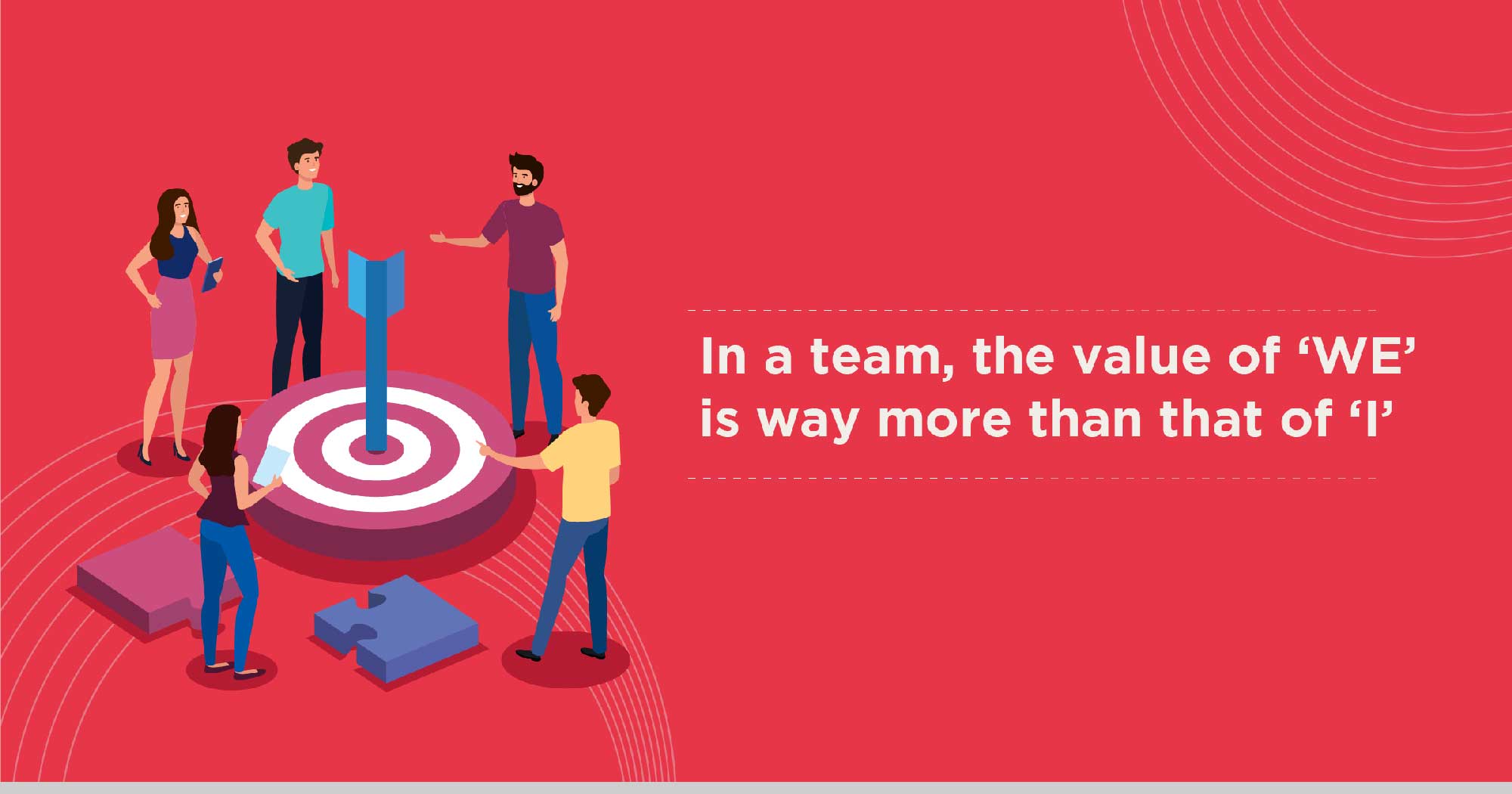
Team Value Matters for Self Aware Person
Self-awareness breeds positivity and confidence. The latter, in particular, minimises the tendency to gossip about team-members and creation of personal lobbies. A truly self-aware person invariably has a positive outlook towards everything & everyone – and (s)he is generally courageous enough to communicate directly with colleagues and team-members, as and when required (instead of talking behind the back). What’s more, self-awareness builds empathy as well. It motivates a person to look out for, and celebrate, the success of others. In a team, the value of ‘we’ is way more than that of ‘I’ – and self-awareness teaches this beautifully.
Must Read- How To Maintain A Proper Work-Life Balance?
Leadership Skills And Accountability Get Enhanced
Gretchen Rubin, a NY Times bestselling author, says: “Self-awareness is a key to good mastery.” This captures the very essence of the fact that people who have mastered the art of self-reflection make great leaders. The enhanced self-awareness is instrumental in accurate identification of personal strength, weaknesses & scopes of improvement. Such people have greater influencing capabilities – and they can automatically generate feelings of trust & respect among team-members in particular, and all overseers in general.
A quick break here…
#FoodForThought: External Self-Awareness Vs Internal Self-Awareness
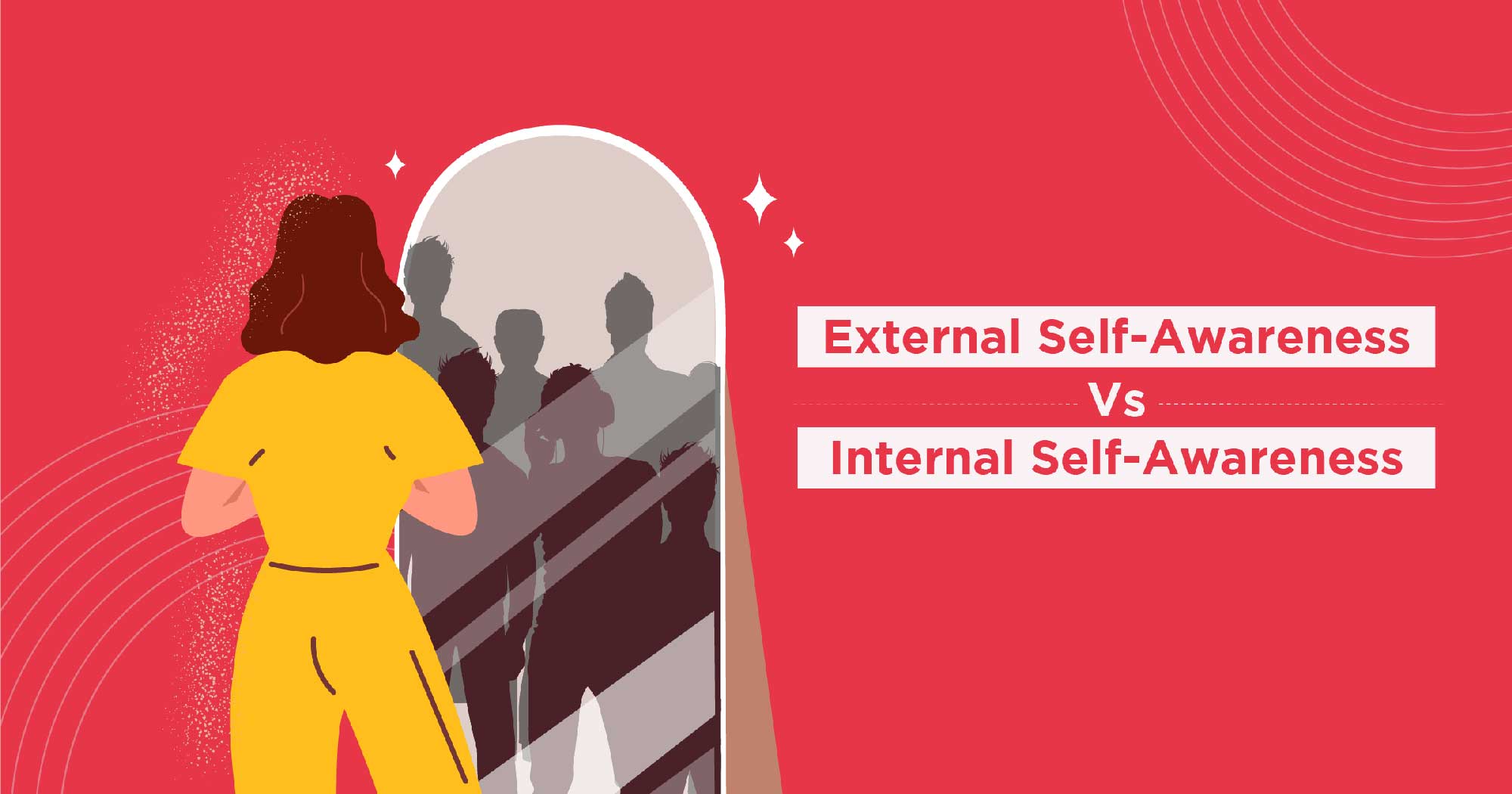
Self Awareness- External & Internal
Noted psychologist and research expert Tasha Eurich has outlined two components of self-awareness. Let us quickly get an idea about these:
External Self-Awareness
External self-awareness helps a person to see & understand how (s)he is being viewed by those around him/her. It’s a powerful tool to build empathy levels.
Internal Self-Awareness
Internal self-awareness underlines the capability to understand how a person’s own values, beliefs & aspirations sync with his/her personal or professional environments. It also includes an unbiased analysis of all personal strengths, weaknesses, feelings, thought processes and reactions. In a way, internal self-awareness is about being ‘true to oneself’.
…and back
The Overall Work Culture Gets A Makeover
Not all organisations realise this – but people who have a lackadaisical attitude towards nurturing self-awareness pull their entire team down. A recent report revealed that high-performing companies are nearly 80% more likely to have employees who possess higher self-awareness (both internally and externally). A high level of self-reflection invariably – and often, unconsciously – helps a person get a proper understanding of his/her own personality, and ideas on how (s)he can evolve. These people take up the challenge of putting themselves to self-examinations, inspire others, and go a long way in making a difference to the overall work culture.
Builds Clarity, Resilience & Transparency
Mistrust, fueled by miscommunication, is one of the biggest causes of team underperformance. Since people who are ‘too closed’ are intimidated by internal conflicts (and are too afraid to initiate frank communications) – interactions are often ineffective. Self-awareness is a powerful tool for fostering stronger collaborations, with transparency becoming enhanced and conflict resolutions becoming easier. With greater clarity about job roles and easy collaborations, people can get to know each other (and their jobs) better. For newcomers too, working with a ‘self-aware’ team, makes the task of blending in a lot easier. There will be challenges at workplaces – it’s just that self-awareness helps people tackle them better.
Makes People Honest About Themselves; Builds Better Decision-Makers
Being highly skilled is of very little use, if a person is not sure how and where (s)he can leverage those skills in the best possible manner. With increased self-awareness and introspection, the task of ‘understanding oneself’ becomes easier – and this enables people to identify how they should use their skills for the betterment of the team and move towards the attainment of organisational goals. A self-aware person does not build a wall of misconceptions around him/herself. Proper self-analysis is key for growth.
Self-awareness also builds the ability to constantly process situations objectively, and gauge the outcome of their actions accurately. Understandably, such self-aware individuals are good decision-makers as well – both for themselves as well as for their teams.
The Journey From Being ‘BLIND’ To Being ‘BRIGHT’ Becomes Easier
There can be no self-improvement without self-awareness. This logic can also be extended to the team level. If a person does not know what others think about him/her (and what (s)he thinks about the others), that creates ‘blind spots’, hampering collaborations and team performance. As self-awareness levels grow, these ‘blind spots’ disappear – and people can gauge their own potentials, as well as that of others, with ease. This enables the entire team to avoid wrong processes & decisions – and puts it on a streamlined path of success.
Note: A self-aware person builds consistency among team-members, removes biases, and ensures that everyone is performing efficiently & at the same level.
How To Become A More Self-Aware Person?
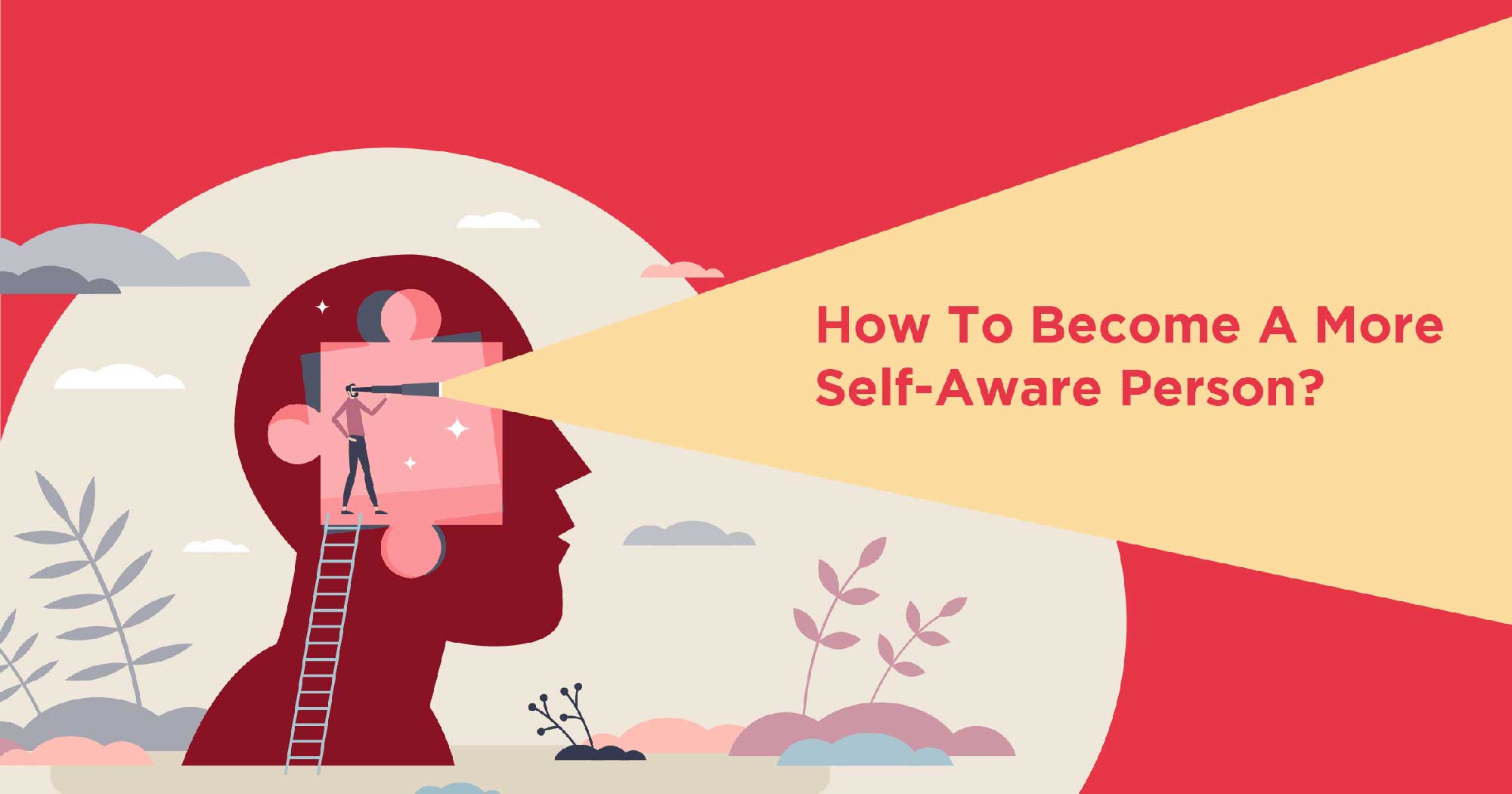
How to Become Self Aware Person
Okay, so the benefits of self-awareness have been pretty much established. However, you also need to know how to inculcate this habit in yourself. The following pointers should help:
→ Hang Out Everyday. With Yourself
In the cacophony of everyday lives, it is easy to feel ‘lost’. The onus is on you to ensure that your personal growth is not neglected. Spend some time with yourself everyday – reflecting on life, and on you as a person. This ‘hanging out with myself’ time has to be distraction-free, to be effective.
→ Be Self-Introspective; But In The Right Way
Not all self-introspection is effective. If individual or team-performance is down, it is easy to fall into the trap of negative thoughts – with resentments creeping in (it’s like throwing away good money after bad). Instead, practise the habit of asking ‘WHAT?’ questions, instead of being stuck with futile ‘WHY?’ queries. Understanding “What my team needs to do to become more efficient?” makes much more sense than trying to find out “Why is my team falling behind?”
→ Develop Your Listening Skills
Everyone ‘hears’, but hardly anyone ‘listens’. That’s where the disconnect comes in. Make a conscious effort to understand what others – co-workers, relatives, acquaintances, seniors – are saying. Be open to feedback, since they would give you a true perspective of the opinions others hold about you. Good listeners are invariably more mindful, and their lives have a greater sense of purpose.
→ Note Positive Triggers; View Yourself In Third-Person Mode
Every moment of a day matters. Keep a note of all the things that trigger positive emotions in you – and try re-creating such moments. Similarly, try to avoid negative triggers. Taking & maintaining a third-person perspective is also important, particularly at moments of high stress – since that would prevent you from being overly-critical or overly-lenient on yourself. Try treating yourself as a separate person – and then think about your actions independently.
Apart from helping to boost day-to-day performances, accurate self-perception builds confidence & self-esteem and enables them to become more agile & effective leaders. The key here lies in understanding that self-awareness is not something anyone is born with. It’s a skill that has to be constantly grown, nurtured and practiced. Those who manage to do this effectively end up being excellent team-players. The rest, understandably, fall behind in the race towards success.
After all, if you don’t know yourself, how will you know others?

Vandana is a Human Resources Manager at Brandwizz. She Heads Talent Management at Brandwizz. Apart from work, she loves reading and listening to music.




